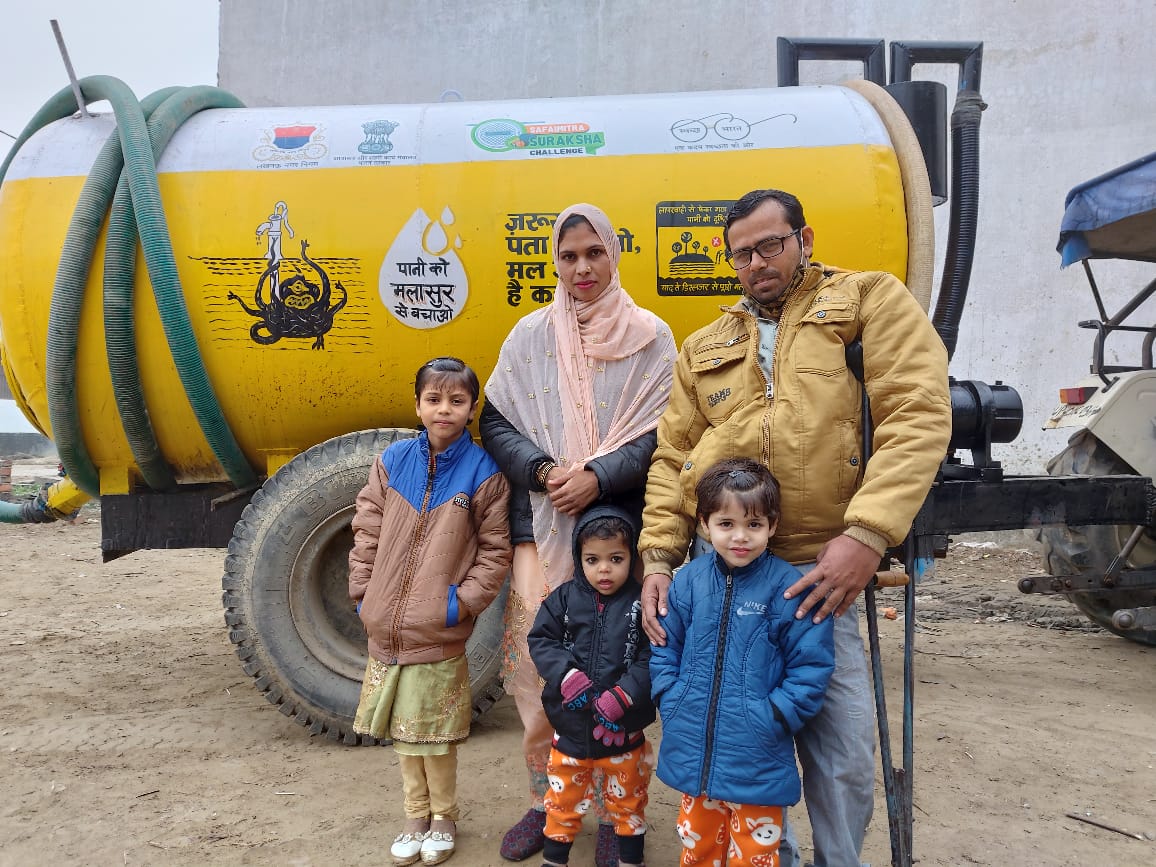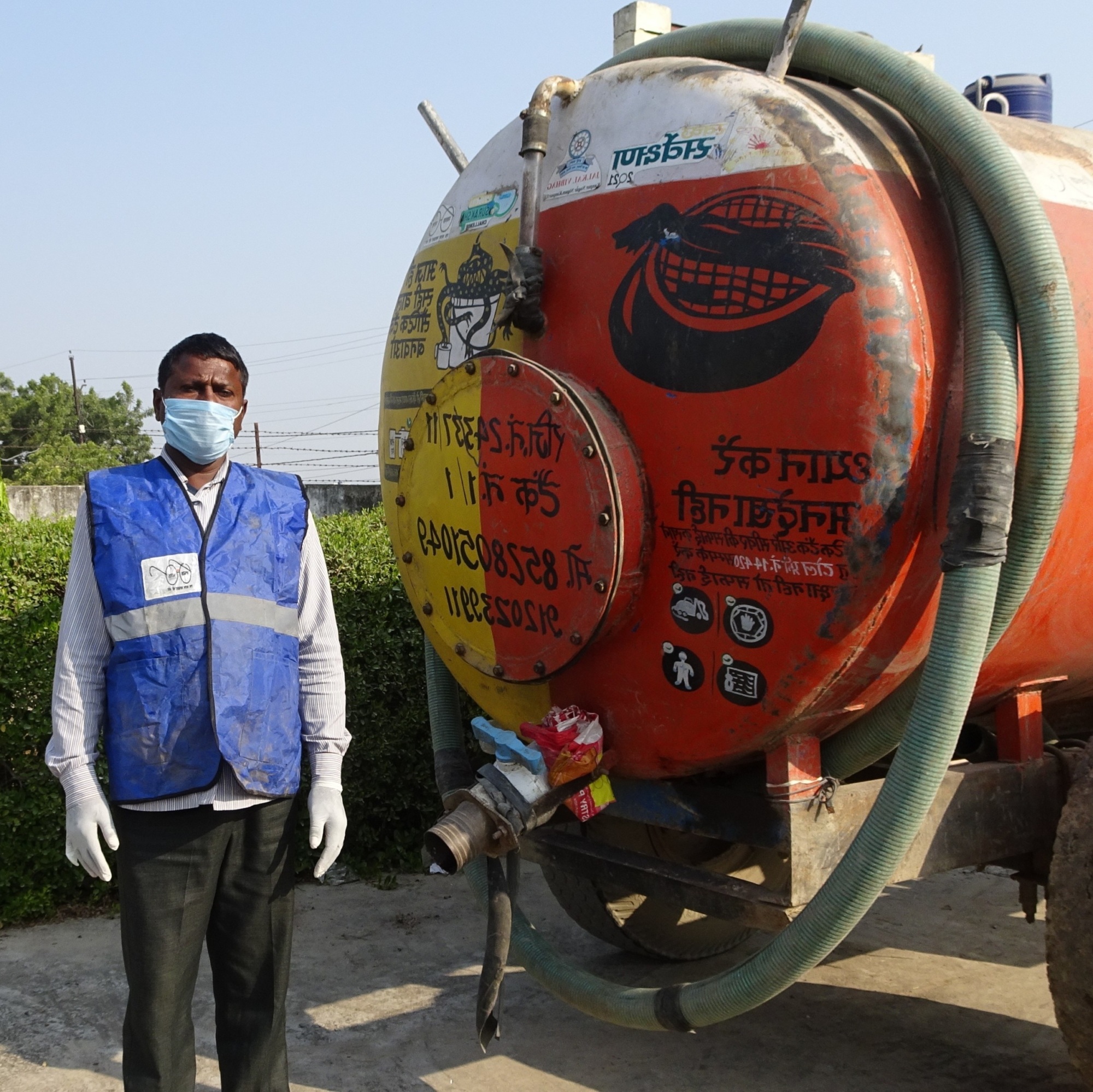


With the support from PSI India, [fecal sludge management] is getting its due respect. It has also increased the social reputation of all the [pit cleaner] association members. [Pit cleaner] businesses in Lucknow are flourishing. I firmly believe, all my progress is due to the sacrifices of my wife Sabina, and her belief [in me].Mohammed Ameen
private sector pit cleaner
In India, an estimated 67% of household toilets use on-site sanitation, as opposed to a connection to an underground sewage system. Without a robust sewer infrastructure, the sludge collected from on-site sanitation is often illegally disposed of in public areas, rivers, and municipal sewers leading to contamination and poor health for the local communities. Through this project, PSI is working to develop a private-sector model to reduce the unsafe disposal of fecal sludge. By organizing and training private pit cleaners in safe disposal practices, and ensuring government support for their work, we are helping to eliminate the 81% of human excrement that is unsafely disposed of in urban India.
Meet Mohammed Ameen and Sabina
Mohammed Ameen and his wife Sabina have three young children and live in Uttar Pradesh, India. Coming from challenging upbringings and Ameen being physically disabled, they were struggling as a family to make ends meet, with Ameen earning a small income from temporary jobs.
With limited opportunities, he decided to start pit cleaning work—cleaning and disposing of septic system waste—but soon faced challenges. Sewer infrastructure and waste management in India are underdeveloped, and often, waste is illegally disposed of, polluting waterways and leading to public health issues. Pit cleaners often face discrimination, as their work is considered undignified, and Ameen was facing harassment by government staff to operate in the city. Ameen was forced to halt his business.
Around the same time, PSI launched its Maverick Collective sanitation project in India—After the Flush, to reduce unsafe waste disposal by organizing and training private sector pit cleaners, like Ameen, while advocating the government for support. Within this new context, Ameen and Sabina decided to restart their business and Sabina sold her jewelry to pay for a new tanker.
Ameen quickly became involved with the project and helped form a pit cleaner association to advocate the government for legal recognition, develop safety protocols and training, and more. Ameen’s business steadily improved, and he was unanimously voted Vice President of the association. Under his strong leadership, the association gained recognition from the government, leading to regular meetings and a new channel of communication for their voices to be heard. Along with the collective bargaining power of the association, Ameen and his colleagues now have access to government sanitation treatment plants to safely dispose of waste and they can build sustainable, thriving businesses.

Maverick Collective allows me to implement my dreams. I dream of a safe, healthy water supply [in India]and a population that can grow, flourish, and implements their own dreams.Natasha Jamal (not pictured)
Maverick Collective Member

